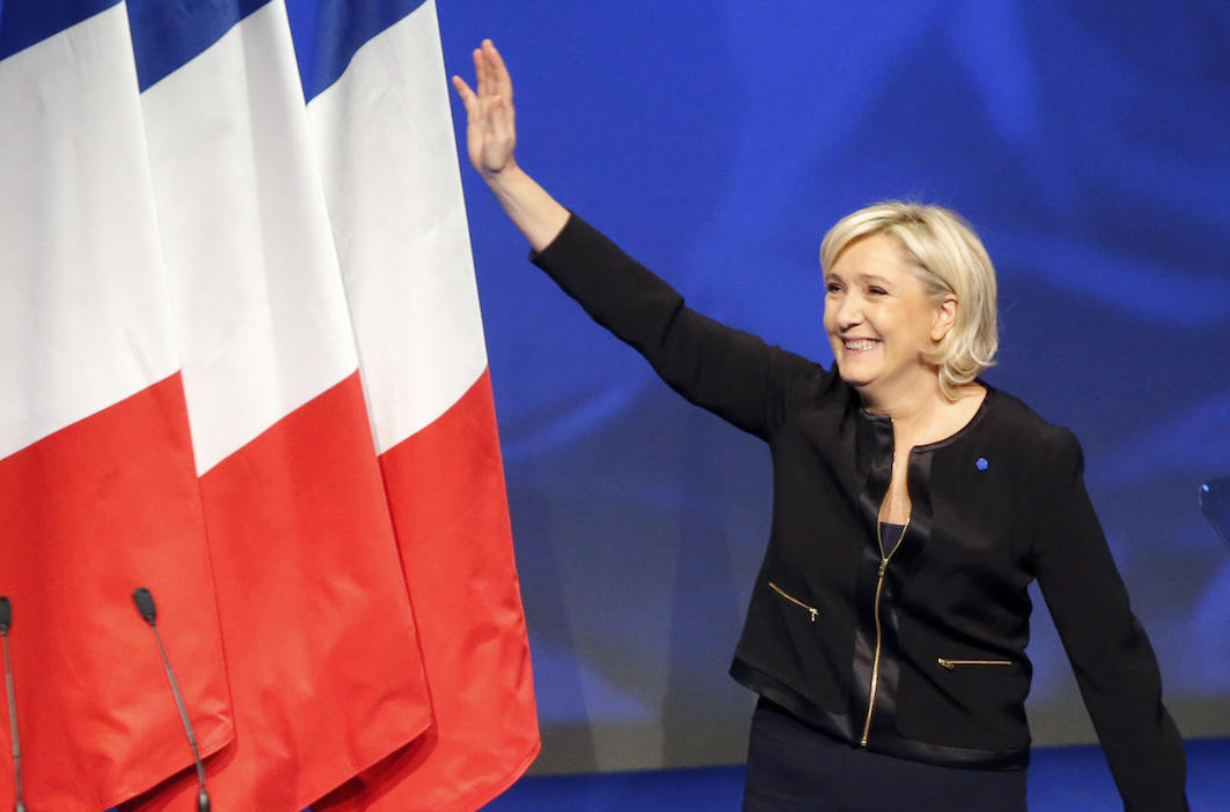The Rise of the Right and the Fall of Conventional Foreign Policy

by ZACH WEHRLI
Over the last year and a half, the rapid and unanticipated popularity of Donald Trump, now the President of the United States, has captivated the world. President Trump faced criticism on many fronts throughout the campaign, with many of the most common and persuasive criticisms levied against him pertaining to his lack of foreign policy knowledge. The President’s controversial foreign policy decisions have continued to dominate headlines in recent weeks, including a phone call with the Taiwanese President Tsai-Ing-wen and his tweets about the recent UN resolution on the legality of Israeli settlements in the West Bank. In the complex fields of foreign policy and international diplomacy, the political ramifications and diplomatic value of Trump’s actions remain up for debate. It seems inevitable, however, that Trump’s approach to foreign policy will result in a dramatic shift in U.S. foreign policy. The United States isn’t the only country facing potentially drastic changes, either. Across Europe, conservative far-right candidates are making significant gains, ushering in an era of isolationist European foreign policy. In France, Front National candidate Marine Le Pen is gaining popular support in her bid for the French presidency, with the most recent polls putting her within 2% of the front-runner François Fillon. [1] Meanwhile, Geert Wilders, leader of the Party of Freedom in the Netherlands, is poised to become the next prime-minister. His popularity continues to grow, despite the fact that he was recently convicted of inciting discrimination after leading an anti-Moroccan chant at a rally in 2014, which called for fewer immigrants from Morocco.
[2] While the popularity of far-right candidates may speak to growing political cleavages in modern-day Europe, the foreign policy shifts under the new far-right administrations will have a powerful impact on international order. The scale of these policy shifts, combined with proposed foreign policy ideas articulated by the incoming Trump administration, have the potential to upend the liberal democratic order that has dominated the international system since the end of World War II.
Marine Le Pen’s Front national party continues to astonish the current French government, just as PresidentTrump’s foreign policy rhetoric continues to perplex members of the Washington establishment. Le Pen and her foreign policy adviser Aymeric Chauprade have repeatedly introduced ideas that would directly impact both the United States and the international system as a whole, jeopardizing the Nuclear Proliferation Treaty (NPT) and threatening the success of the current campaign against ISIL. In remarks two years ago, she expressed her dissatisfaction regarding France’s current relationship with Saudi Arabia, a current ally in the fight against Islamic extremism. In addition, she characterized the Persian Gulf nation as a country ruled by extremist clans attempting to dominate global Islam, using these statements as justification for her desire to distance Paris from Riyadh. [3] While tensions between the United States and Saudi Arabia have grown over the last year, particularly after Trump threatened to block trade with the oil-rich nation in an attempt to achieve U.S. energy independence, the country remains a strategic U.S. ally in the Middle East. [4] If the relationship between the French and the Saudis were to sour because of a shift in French policy, it would put the United States in a particularly complicated position, directly between two strategically and ideologically important allies. Additionally, Le Pen has made strong statements in support of the Islamic Republic of Iran, including advancing the idea of loosening restrictions on Iran’s nuclear policies – a policy the Trump administration could effectively participate in if the Iran deal is abolished without a replacement. [5] If the Front national party is elected and Le Pen and the President follow through with the aforementioned policies, countries like Israel and the United States would face a variety newfound complications in the Middle East. Saudi Arabia’s contributions of bases, airstrikes, and training of Syrian rebels are vital to the coalitions formed to combat ISIL in Iraq and Syria; the exacerbation of tensions between Saudi Arabia and western allies like France and United States would be detrimental in the campaign against Islamic extremism. Additionally, a decision by the Saudis to pull that crucial support could result in more Syrian deaths and the opportunity for ISIL to regain recently lost territory.
The rise of the far-right in the Netherlands is proving to be an equally troubling situation. The anti-Islamic, anti-immigrant, and nativist rhetoric espoused throughout Donald Trump’s presidential campaign was in fact widespread in the Netherlands well before the 2016 presidential election, championed by none other than Geert Wilders. The anti-immigrant stances of Trump and Wilders are so similar in fact, that Wilders attended the Republican National Convention in Cleveland, Ohio in July 2016. Wilders’ criticisms of Islam and immigration were met with joyous applause. [6] Both Trump and Wilders have advocated for the introduction of strict anti-immigration legislation, specifically targeting immigrants from non-Western and non-European countries. With Trump’s proposals to ban Muslim immigration in the United States and Wilders’ proposals to fine women wearing hijabs in the Netherlands, the nativist policies advocated by both politicians have the potential to upend an international cornerstone of liberal democracies: the acceptance and assimilation of refugees during times of global crisis. As the conflict in Syria reached a violent climax in Aleppo in recent months, thousands of refugees poured out of the city in buses headed for Raqqa. If president Bashar al-Assad’s military campaign continues as expected and the government sets its sights on the rebel-held city of Raqqa next, then this new mass of Syrians will be forced out of the country like the millions that have already fled. Once countries like the United States and the Netherlands— which have historically been known to stand by liberal immigration policies and international cooperation— impose anti-immigrant and anti-refugee legislation, it will exacerbate the issues of overcrowding in refugee camps across the world. The health care in these camps, which aren’t equipped to handle the current Syrian refugees, let alone an additional influx, will be directly impacted. From the proliferation of diseases like Polio that have not been seen since the development of modern day vaccines to treatable conditions like diabetes, the continued overcrowding of these camps will result in even more unsafe living conditions for these refugees. An ideological and political shift of this magnitude will worsen the current refugee crisis and dramatically lower the quality of life for refugees who have managed to find their way out of conflict-ridden zones.
While it remains to be seen whether or not Le Pen and Wilders will win their respective races, it is clear that the policies and ideas the candidates are championing resonate with their respective constituencies. These deviations from current policies and values, for better or worse, will have the ability to drastically impact the international order and alter the liberal democratic values that have dominated international politics for the better part of a century. A Dutch refusal to accept refugees or a French endorsement of Rouhani’s Iran both have the ability to directly impact the European Union, the United States, and the world simply by diverging from international norms. Without flagships for liberal democracies like the United States, France, and the Netherlands, it is likely that right-wing ideals will continue to grow across the European continent and the world as a whole. President Trump and his foreign policy advisers will have to pay particularly close attention to the rise of far-right sentiment within the European Union in order to intelligently navigate the increasingly complicated world of international politics. And if Mr. Trump does find himself in the company of far-right leaders like Le Pen and Wilders, the future of the international system will undoubtedly deviate even further from the liberal democratic ideals that define the current international order.
[1] Yves M. Cann, “Présidentielle 2017 .” Les Echos: Présidentielle 2017, January 17, 10-14. Accessed January 10, 2017 http://elabe.fr/wp-content/uploads/2017/01/05012017_les_echos_radio_classique_intentions-de-vote-presidentielles_vague_5.pdf.
[2] Nina Siegal, “Geert Wilders, Dutch Far-Right Leader, Is Convicted of Inciting Discrimination.” The New York Times. December 09, 2016. Accessed January 10, 2017. http://www.nytimes.com/2016/12/09/world/europe/geert-wilders-netherlands-trial.html?_r=0.
[3] Peter Martino, “Marine Le Pen’s Worldview: Oppose America, Embrace Iran.” Gatestone Institute. Accessed January 10, 2017. https://www.gatestoneinstitute.org/4160/marine-le-pen-chauprade.
[4] Tim Daiss, “No Saudi Oil Says Trump; Saudi Arabia Fires Back.” Forbes. November 17, 2016. Accessed January 10, 2017. http://www.forbes.com/sites/timdaiss/2016/11/16/no-saudi-oil-says-trump-saudi-arabia-fires-back/#25b31515708b.
[5] Peter Martino, “Marine Le Pen’s Worldview: Oppose America, Embrace Iran.” Gatestone Institute. Accessed January 10, 2017. https://www.gatestoneinstitute.org/4160/marine-le-pen-chauprade.
[6] “Nigel and Geert’s Wild Republican Convention.” Foreign Policy. Accessed January 10, 2017. http://foreignpolicy.com/2016/07/21/nigel-and-geerts-wild-republican-convention/.
Works Cited
Yves M. Cann, “Présidentielle 2017 .” Les Echos: Présidentielle 2017, January 17, 10-14. Accessed January 10, 2017 http://elabe.fr/wp-content/uploads/2017/01/05012017_les_echos_radio_classique_intentions-de-vote-presidentielles_vague_5.pdf.
Nina Siegal, “Geert Wilders, Dutch Far-Right Leader, Is Convicted of Inciting Discrimination.” The New York Times. December 09, 2016. Accessed January 10, 2017. http://www.nytimes.com/2016/12/09/world/europe/geert-wilders-netherlands-trial.html?_r=0.
Peter Martino, “Marine Le Pen’s Worldview: Oppose America, Embrace Iran.” Gatestone Institute. Accessed January 10, 2017. https://www.gatestoneinstitute.org/4160/marine-le-pen-chauprade.
Tim Daiss, “No Saudi Oil Says Trump; Saudi Arabia Fires Back.” Forbes. November 17, 2016. Accessed January 10, 2017. http://www.forbes.com/sites/timdaiss/2016/11/16/no-saudi-oil-says-trump-saudi-arabia-fires-back/#25b31515708b.
“Nigel and Geert’s Wild Republican Convention.” Foreign Policy. Accessed January 10, 2017. http://foreignpolicy.com/2016/07/21/nigel-and-geerts-wild-republican-convention/.
Photo: Sputnik International.



